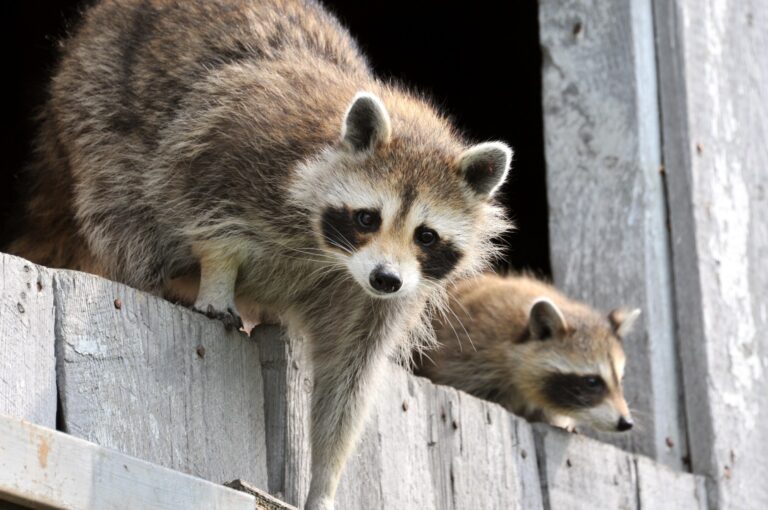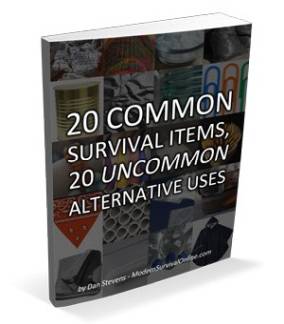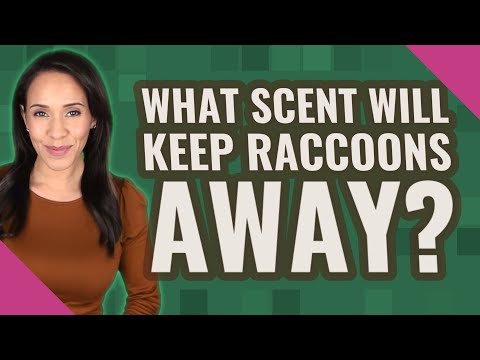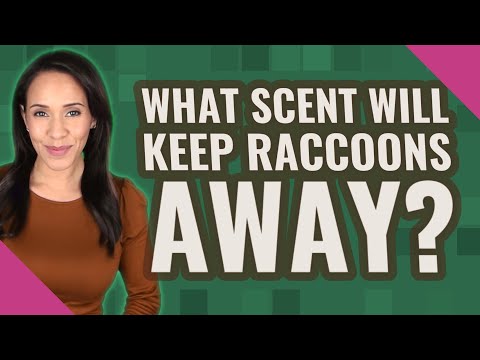Some of the most persistent pests that you’ll have to deal with in the suburbs or out in the country are raccoons. Yeah, I get it: They are definitely cute and charming, but you won’t think they are quite so appealing when you have to pick up shredded bags of trash off your driveway at 3:00AM in the morning. Raccoons are smart, and they adapt quickly, and so scaring them off isn’t a sure thing.

You need something that’s actually going to drive them away. Some folks say that bleach is actually a good raccoon repellent. Is that true? Does bleach keep raccoons away?
Yes, bleach can keep raccoons away but it is generally a short-lived solution. The odor of bleach degrades quickly and some raccoons can become resistant to it.
To be perfectly clear, bleach is a strong chemical that can be hazardous to people and wildlife alike, so we’ve got to be smart here.
That being said, if you need a quick and sure solution to prowling raccoons, bleach can do the trick or at least buy you some time to implement a more permanent fix. Keep reading, and you’ll learn a lot more about using bleach to repel raccoons.
Bleach works to repel raccoons by exploiting these animals’ incredibly sensitive noses against them. Raccoons have a genuinely amazing sense of smell, but the trade-off is that they themselves are easily disturbed by harsh chemicals and fumes. Bleach happens to be just such a chemical, and a caustic one to boot.
When raccoons get a whiff of this stuff it is overwhelming to them, maybe even a little bit painful, and if they are already used to coming and going without any problems such a sudden change, and apparent threat, in their environment is likely to make them retreat.
It might only be for a short time, but they might decide to take their chances elsewhere in a place that doesn’t have such an awful nuisance around.
It’s reasonably safe to use bleach as a raccoon repellent, though this is definitely not a use you’ll find on the factory packaging. Bleach is highly caustic and highly reactive, and that presents some real dangers that you need to be aware of.
For starters, when you are using it yourself, it will ruin any clothing that it gets on, obviously, but more importantly, it can hurt your eyes and skin on contact. You must be cautious to avoid spills and inhaling those fumes yourself.
Another, bigger problem is that bleach will combine and react furiously with many other chemicals, and some of them can produce extremely dangerous toxic gases or liquids.
Ammonia is probably the most well-known and dangerous, producing a variant of mustard gas. And that ammonia can come from a source that you might not expect, like urine! Ask anyone who has ever used bleach unknowingly to try and clean up a pet accident and they will tell you.
This means you must be very careful when deploying bleach around your home especially in or around trash cans as raccoon repellent.
The good news is that the chemical compound that makes bleach what it is breaks down in time with exposure to air and becomes harmless salt water. Just know that it will remain a risk factor the entire time until then.
It can be, yes. Chances are you can count on raccoons running the other way when they encounter bleach, especially a close range, but if the animal were to get some on their eyes, directly on their nose, or in their mouth it is going to injure it, maybe even kill it.
As mentioned above, bleach will readily burn eyes, sensitive skin, mucous membranes, and the tissue of the lungs. Any raccoon that blunders into a container of bleach or, whatever reason, it’s trapped in an enclosed space with it is in for a bad time and might die horribly.
This can be more likely than you think if you try to rely on bleach as a long-term repellent, because raccoons are prone to overcoming their initial aversion and soldiering on in spite of it in quest of food or shelter.
Think this through before you use bleach as raccoon repellent!
You can use bleach in containers or repellent “stations” around your home or other areas that you want to protect from raccoons, or as a spray that you can use to form a kind of perimeter.
If you want to use bleach in stations to form a sort of network of protection or to repel raccoons from specific areas, simply fill up small containers with it, put a lid on them, and then poke large holes in the lid to let the aroma out. This will hopefully help protect it from spilling and contamination.
Your other alternative is to mix bleach with water, using equal parts of each, and then load it up in a sprayer or spray bottle to leave a perimeter around your home or property to hopefully repel the raccoons.
Obviously, take great care of that anything you are spraying the bleach on either it won’t be harmed by it, damaged by it, or that you just don’t care what harm comes to it before going this route.
Remember that bleach breaks down in time with exposure to air, and once you can no longer smell that bleachy smell it isn’t doing anything to repel raccoons.
Check your containers or reapply your spray as needed to maintain protection, and remember what I said about raccoons getting used to it in time.
You should expect your temporary bleach deterrent to start failing if raccoons remain in the area. When that happens, you need a good plan B. Ideally, if it’s legal or if you can pay for a trapper, you can trap and relocate the raccoon somewhere far away from your property.
Otherwise, you should look into more persistent and effective deterrents that can irritate and repel raccoons with greater effectiveness and also a higher degree of safety. Natural ones like spicy pepper powder or cinnamon can work, as can commercial deterrents.
Lastly, consider that raccoons are classified as pest animals in many areas, and you might be able to dispatch them using lethal traps or other means legally.
 Like what you read?
Like what you read?
Then you’re gonna love my free PDF, 20 common survival items, 20 uncommon survival uses for each. That’s 400 total uses for these dirt-cheap little items!
We will not spam you.



 Watch this video on YouTube
Watch this video on YouTube